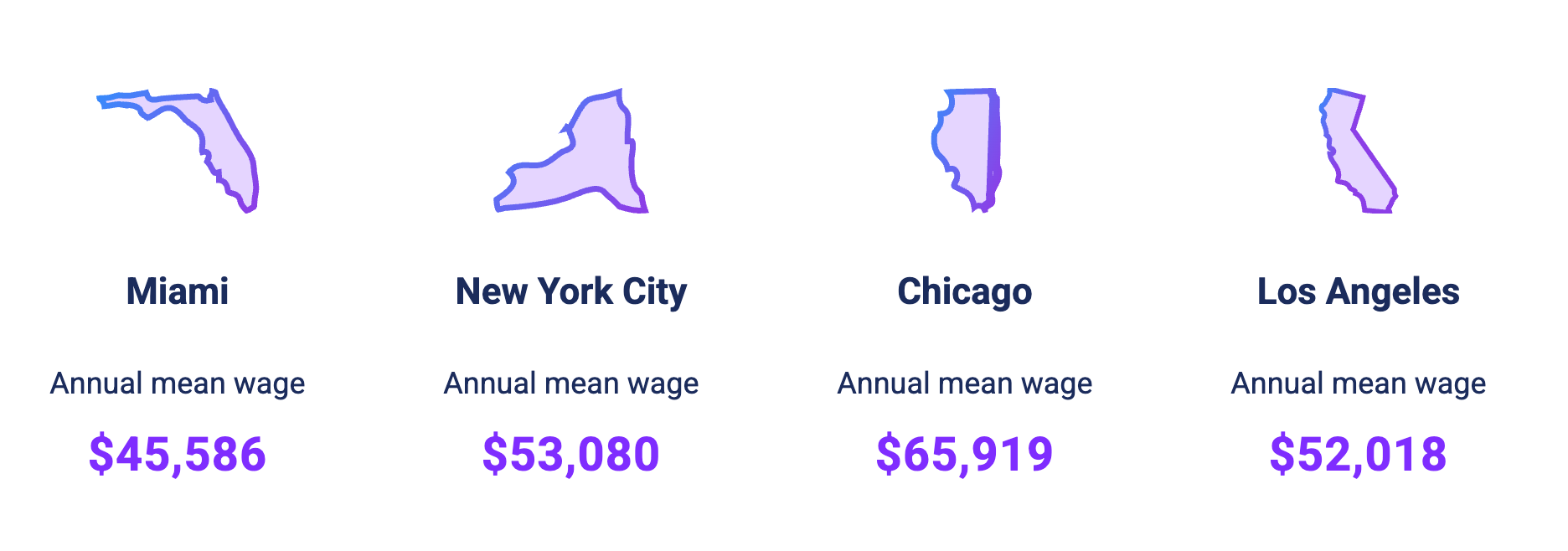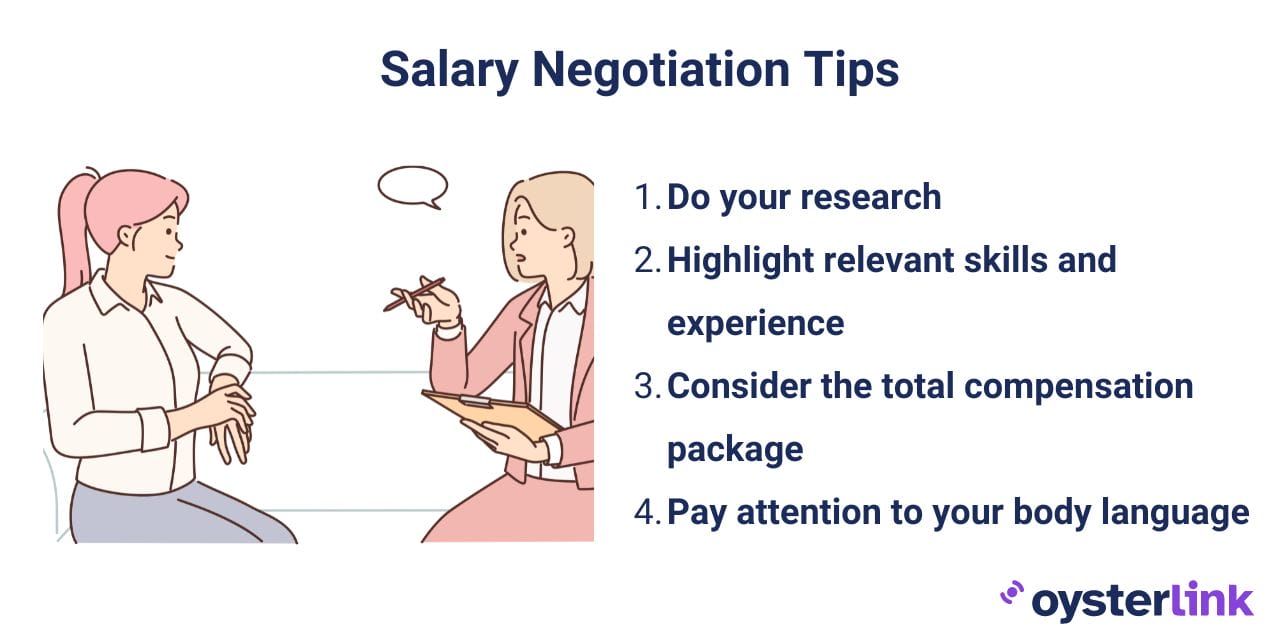Sushi Chef Salary in the United States
The average Sushi Chef salary in the U.S. is $58,909 per year*. Find out how to increase your earnings through:
- Learning about the factors that influence Sushi Chef pay grades
- Negotiating your salary and other compensation
* Calculated using our salary data collection methodology
How Much Does a Sushi Chef Make Monthly?
On a monthly basis, the average Sushi Chef salary would be $4,909.
How Much Does a Sushi Chef Make Hourly?
The average hourly wage for Sushi Chefs in the U.S. is $28.32.
How Much Does a Sushi Chef Make Weekly?
The average weekly salary for Sushi Chefs in the U.S. is $1,133.
Sushi Chef Salary by State
Sushi Chefs in New York ($67,187), Washington ($66,037) and Massachusetts ($63,650) earn the highest average salaries. Meanwhile, those in Oklahoma ($49,626), Louisiana ($45,865) and West Virginia ($43,516) earn the lowest.
The table below lists Sushi Chef salaries in all 50 states and the District of Columbia, sorted from highest to lowest.
Sushi Chef Salary in Major US Cities
Out of the four major cities listed below, Chicago pays Sushi Chefs the highest average salaries ($65,919), followed by New York City, Los Angeles and Miami.

[Calculated using ZipRecruiter, Indeed and Salary.com data]
Factors Affecting a Sushi Chef's Pay
Beyond just the location, there are several other factors that affect the average pay for Sushi Chefs in the U.S. These include:
Experience
Thanks to excellent knife and fish handling skills, experienced Sushi Chefs will be offered higher salaries than junior ones. Working in this role for, let's say five or more years, means they have become experts at preparing different sushi dishes using different techniques.
Extensive experience also allows Sushi Chefs to efficiently manage kitchen operations, maintain high standards of food quality and safety as well as mentor and train junior staff.
Education and training
Sushi Chefs with formal education in culinary arts or certifications specific to Japanese cuisine can also enhance their earning potential.
Some employers may value certifications like the Certified Sushi Chef (CSC) or diplomas from reputable Japanese culinary schools.
Restaurant type
High-end sushi restaurants that pride themselves in using top-quality ingredients and the most creative presentation techniques usually offer higher salaries to Sushi Chefs than casual sushi bars. This is because they cater to a wealthier clientele who expect exceptional quality.
Consequently, such establishments generate higher revenue and are able to pay their Sushi Chefs better.
How To Estimate Your Take-Home Pay as a Sushi Chef
If you work as a Sushi Chef in the United States, take advantage of our Paycheck Calculator. This handy tool will help you determine the amount of money you'll have left after taxes in your state.
All you need to do is:
- Input your salary.
- Choose your pay frequency from the dropdown menu (annual, monthly, biweekly, weekly, daily or hourly).
- Select your state.
- Click on the "calculate tax" button.
Salary Negotiation Tips for Sushi Chefs
The salary negotiation process is extremely stressful for most people. Nevertheless, it's an indispensable part of the job search process. To help you out, we've come up with the following salary negotiation tips:
1. Do your research
Make sure to research the salary rates for Sushi Chef positions in your area. This is important as it helps you understand the realistic amount and avoid settling for less than you deserve.
2. Highlight relevant skills and experience
Emphasize your skills and experience when explaining to your prospective employer why you deserve a higher salary. For example, you can mention your expertise in fish preparation, knife skills and your knowledge of various sushi-making techniques.
Also, mention any previous experience in high-end restaurants or with omakase because this can help justify a higher salary.
3. Take benefits beyond pay into consideration
Don't focus only on money — consider discussing other perks and benefits such as free meals, employee discounts, paid vacation and sick days, health insurance, retirement funds and parental leave.
These can improve your overall well-being and work-life balance, making your Sushi Chef job more enjoyable.
4. Pay attention to your body language
Your body language can influence the outcome of salary negotiations. If you want to appear confident, you need to maintain eye contact, sit straight and avoid fidgeting or playing with your hair.
Confidence can make a big difference in how your potential employer perceives you and can help you get the salary you deserve.

Beyond Pay: Perks & Benefits for Sushi Chefs
As we've mentioned above, Sushi Chefs are often offered a number of perks and benefits along with their pay. Here are some of the most common ones:
- Health, vision and dental insurance
- Paid time off
- 401(k) and 401(k) matching
- Free meals during shifts
- Parental leave
- Employee assistance programs
- Commuter benefits
- Life and disability insurance
- Wellness benefits
How Much Do Careers Similar to a Sushi Chef Get Paid?
Sushi Chefs earn more than Pastry Chefs and Kitchen Managers but less than Private Chefs and Head Chefs.
